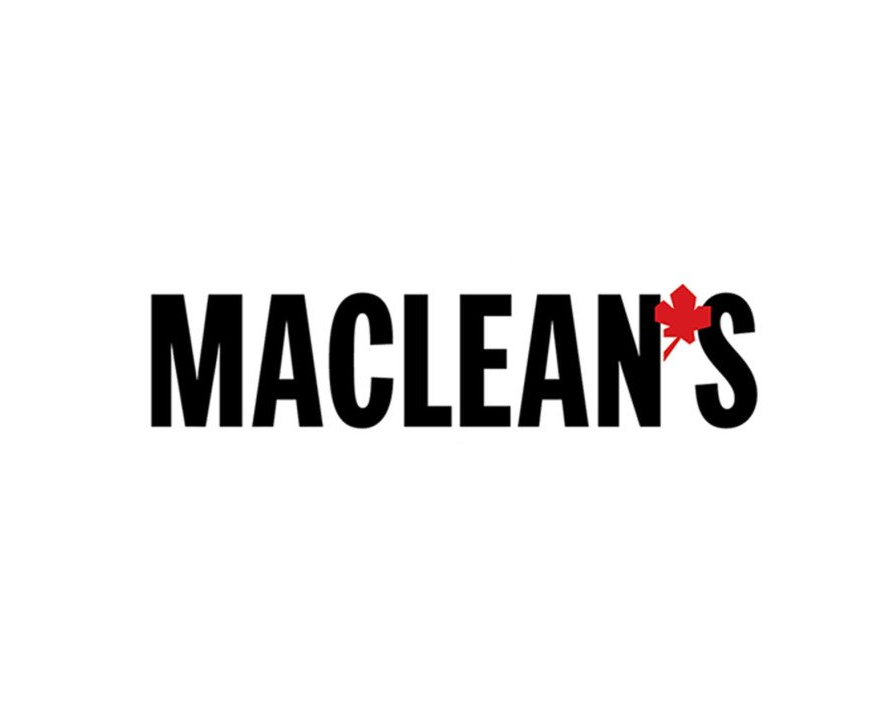CBC Windsor News | Pandemic Top-Up
Tim Berezny • May 26, 2020
Story starts at 15:54 mark. Link to source.
Share
More Updates

Today’s on-going political unrest and large-scale protests are a clear reflection of systemic racism and have real impacts on individuals and their health in our communities in Ontario. This kind of discriminatory hurt can pull apart the communities that we all live and work in. Systemic racism impacts the delivery of health and social services for many minorities including Blacks, Indigenous people and People of Colour. There is strong evidence now that COVID-19 has augmented these systemic inequalities. It is only by acknowledging these impacts and their root causes that we can start addressing them. At OCSA, we commit to listening and learning from those who experienced this every day in order to ensure our actions work towards eliminating them. We call on the provincial government to declare racism as a public health crisis and ensure Black communities and other minorities have access to culturally appropriate home and community care services and develop a clearly articulated, targeted and systemic anti-Black racism strategy.

The province had actively engaged the Ontario Community Support Association (OCSA) on the development of a new legislative framework for the home and community care sector, which led to the introduction of Bill 175 and the associated proposed regulation summary on February 25, 2020. OCSA had been supportive of the approach for developing Bill 175 and the province’s plan to modernize the sector. However, COVID19 has halted sector consultations on Bill 175 and the proposed regulations. In the past number of months, the sector has been solely focused on responding to the COVID-19 pandemic by supporting and delivering services that enable frail seniors and adult with physical disabilities safely isolate and stay healthy during COVID-19. This is why OCSA believes that there is no need to hastily move the bill through the legislative process until further engagement with the sector. At present, OCSA strongly believes that the timing is not right to move forward with this legislation. COVID-19 has had a great impact on the health sector and has fundamentally changed how services are delivered across the entire health sector. The passing of Bill 175 should be delayed until the COVID-19 pandemic has passed, which would enable the sector to better understand and incorporate key learnings from the pandemic response. OCSA is calling on government to consult the sector about the lessons learned from COVID-19 in order to ensure a successful transformation of the home and community care sector for clients, providers and front-line staff. Our support of this legislation and associated regulations is contingent on open and transparent collaboration between government, the home and community care sector and other stakeholders. The recent pandemic is a great opportunity for us to learn, adapt and create resilient and sustainable systems for the future. We must make the most of this opportunity.

An Orillia company is using its online expertise to help isolated, low-income seniors get the essentials during the COVID-19 pandemic. Caredove, a local software company, is already in the business of connecting health-care professionals and their clients with available resources. So, when it was asked by the Ontario Community Support Association (OCSA) to host a website to help out during the pandemic, “it made sense for us to do it,” said Caredove CEO Jeff Doleweerd.

May 25, 2020 Premier Doug Ford Queen’s Park Toronto, ON M7A 1A1 OPEN LETTER Dear Premier Ford, As a broad group of healthcare stakeholders whose members employ tens of thousands of front line workers in the fight against COVID 19, we write to you today to seek immediate clarity on the implementation details and timing of the release of pandemic pay to support frontline workers employed by organizations funded by the Ministry of Health and the LHINs. On April 25th, we each applauded the Government of Ontario’s announcement that frontline workers would be recognized with temporary pandemic pay for the current challenges they face keeping Ontarians healthy, safe and informed during the pandemic. A month later, it is still not clear whether the efforts of all of our healthcare workers will be recognized or if pandemic pay is restricted to a subset of employees. Also, funding has yet to flow to the front line and in fact for those front-line workers whose organizations are funded by the Ministry of Health and/or LHINs have yet to receive clarity on whether or not they will be considered front line workers eligible for pandemic pay. This is contributing to extreme morale issues at the front line at a time when staff need to be supported most. It is also creating unnecessary conflict for employers who are left trying to explain to their employees why they cannot provide neither clarity nor the pay itself. Together, we are urging the Provincial Government to immediately communicate the implementation details, including confirmation that the funding is for all workers on the frontline, and release funding so that frontline workers can start to see the benefit now while the economy is opening up and they are still hard at work to contain the pandemic. Additionally, to recognize the critical services provided and the team effort required in fighting COVID-19, we continue to urge that pandemic pay be applied to all non-management front line providers, including regulated frontline staff. Every day, it becomes increasingly difficult to see this great initiative, that has such great promise for health care worker recognition, be undermined by delay. We thank you for your attentiveness to our request and look forward to your reply. Yours truly, (Original Signed By) Justin J. Bates, CEO, Ontario Pharmacists Association Anthony Dale, CEO, Ontario Hospital Association Lisa Levin, CEO, AdvantAge Ontario Kavita Mehta, CEO, Association of Family Health Teams of Ontario Kimberly Moran, CEO, Children’s Mental Health Ontario Camille Quenneville, CEO, Canadian Mental Health Association, Ontario Deborah Simon, CEO, Ontario Community Support Association Adrienne Spafford, CEO, Addictions and Mental Health Ontario Adrianna Tetley, CEO, Alliance for Healthier Communities Alisha Tharani, Executive Director, Mental Health Partners Samantha Yau, President, Canadian Society of Hospital Pharmacists Ontario Branch Cc: Hon. Peter Bethlanfalvy, President of the Treasury Board Hon. Christine Elliott, Deputy Premier and Minister of Health James Wallace, Chief of Staff to the Premier Mark Lawson, Deputy Chief of Staff to the Premier Karl Baldauf, Chief of Staff to the President of the Treasury Board Leif Malling, Chief of Staff to the Deputy Premier and Minister of Health

An Orillia company is using its online expertise to help isolated, low-income seniors get the essentials during the COVID-19 pandemic. Caredove, a local software company, is already in the business of connecting health-care professionals and their clients with available resources. So, when it was asked by the Ontario Community Support Association (OCSA) to host a website to help out during the pandemic, “it made sense for us to do it,” said Caredove CEO Jeff Doleweerd.

As the province scrambles to contain the COVID-19 crisis in long-term care homes, disability advocates fear their sector could be next in the pandemic’s path of destruction and the “window is closing” for decisive action that could spare them from similar tragedy. In the long-term care industry, the ingredients for disaster were baked in from the start: A deadly and infectious virus, buildings full of vulnerable people, and a highly-mobile workforce for whom close contact is part of the job description. But these risk factors are also inherent in “congregate” living spaces for people with disabilities and advocates say there is an urgent need for coherent plans aimed at protecting these vulnerable people.

April 10, 2020, Toronto – Ontario Community Support Association (OCSA) and our over 220 members support over a million vulnerable people across the province and we are proud of all our frontline workers during this incredibly stressful time. Our sector’s main concern during this time of pandemic is the safety of our clients and frontline workers. We have tabled with government the need to keep our sector top of mind and the need to prioritize the allocation of Personal Protective Equipment (PPE) to allow workers to provide safe care during the COVID-19 outbreak. We are aware of the government’s actions to obtain resources and appreciate all their efforts. However, the current situation at one of our member agencies, Participation House Markham, is a distressing example of the immense challenges facing the province right now in ensuring an adequate supply of PPE across the health system. The province must act now to ensure the safety of staff and residents of Participation House Markham and other home and community care providers in Ontario. As community spread is now the main transmission vehicle in Ontario, the provincial allocation of PPE must reflect this. The home and community care sector encompasses a multitude of services and service providers, including congregate settings such assisted living, transitional care homes, as well as home care and community based programs like Meals on Wheels; services that normally can help keep people healthy and out of the hospital. But our sector can only help keep hospital admissions from mounting with support and, particularly during this time of pandemic, access to PPE supplies. We are all trying our best to do our part, but we cannot succeed without the tools we desperately need.

I want to thank you for the opportunity to appear before this committee and to provide the perspective of the not-for-profit home and community support services health sector on Bill 74, The People's Health Care Act . My name is Deborah Simon and I am the CEO of the Ontario Community Support Association. OCSA represents nearly 240 not-for-profit agencies across the province who provide compassionate, high quality home care, community support services and independent living services to over one million Ontarians. There are many organizations in your ridings that provide invaluable services to seniors and people with physical disabilities such as in-home nursing and personal support, Meals on Wheels, Alzheimer day programs, transportation to medical appointments or supportive housing. Our sector is a key part in ending hallway health care as we offer over 25 health and wellness services that keep people healthy, living in their communities, and gets them discharged faster from hospitals. This includes the delivery of over 3 million meals, providing over 2 million rides and over 225,000 clients served in Adult day programs. We know that the current model was not working for providers or clients. We share the conclusions in the first report by the Council that home and community care services haven’t grown fast enough, that caregivers are facing bigger and bigger challenges and that there is a clear need for a long-term capacity plan for the health system. Our association supports the government’s goal of creating seamless transitions between hospitals and home and community care – and across the entire health system. We recognize that the government’s new vision of local Ontario Health Teams who support their patients throughout their journeys through the continuum of care, offers plenty of opportunity to strengthen collaboration between providers. The proposed model definitely has the potential to enable stronger and more direct relationships between service providers that can translate into smoother care for clients. However we do have concerns regarding the inclusion of community support services and attendant care in the core basket of services, the role of not-for-profit delivery, the role of community governance and the need to address front-line worker shortages. We would like to share 5 recommendations with you. The first is that Ontario Health Teams must incorporate a strong model of community governance and not-for-profit delivery of services. Shared community governance will ensure Ontario Health Teams understand the health needs of their communities. This knowledge is necessary to ensure that services are tailored to what a specific community actually needs as opposed to a one-size-fits-all solution that wastes taxpayer dollars. In addition, a strong shared community governance will ensure a strong focus on upstream services – including health promotion, social determinants of health and preventative health. The important contributions not-for-profit home and community care bring the health system cannot be overstated. Its return on investment can be measured in many ways. For example, volunteers contribute over 3 million hours of service each year, providing a value of over $78 million for free to the health care system. We must ensure these important contributions are not lost in this system transformation. Our second recommendation is that a list of core services Ontario Health Teams are expected to deliver across the province needs to be identified. Core services must include community support services and independent living, along with home care. Keeping people healthy at home and out of hospitals isn’t achieved through home care services alone. Last year, community support services and attendant care services enabled over a million individuals to thrive in their community. Our third recommendation relates to health human resources. For any transformation to be successful it must include a plan to support and address the continuing shortage of frontline workers across the health system. The current shortage of personal support workers (PSW) is having ripple effects across the entire health system. People are staying in hospitals longer or delaying the start of home care services due to the lack of qualified human resources. The government needs to implement a health human resource strategy to attract and retain PSWs, nurses and other care providers in the home and community care sector. Any strategy must include a plan to close the compensation gap for front-line workers between the home and community care sector and institutionalized care, such as hospitals and long-term care. The government should also amend the Public Sector Labour Relations Transition Act to ensure it does not become a barrier to innovative service integrations. One way to do this is to return it to its pre-2006 application, ensuring it only applies to full organizational integrations. Our fourth recommendation is that existing local collaborations should be leveraged to build Ontario Health Teams. Good work to build partnerships across sectors has already taken place at the local level in many parts of the province. Home and community care organizations are working directly with hospitals to encompass new models of care to streamline handovers and wrap services around patients. The sector has shown itself to be supportive of integration for the benefit of patient and client care, we caution against the strategy of reducing the number of providers arbitrarily. Our last recommendation regards public accountability. OCSA recommends that the legislation be amended to ensure that the meetings of the board of governors of Ontario Health must be open to the public. In the administration and spending of public dollars there must be strong and open public accountability. In closing, we are convinced we can utilize the strength of this sector to help government eliminate hallway health care. We call on the government to strengthen the relationship with our sector and ensure CSS and home care play a vital role in solving hallway medicine and build a better system for people that is based on a health and wellness approach. With the appropriate supports, our sectors alleviate hallway medicine by keeping people healthy and out of hospitals in the first place and by shortening their stay by ensuring they have appropriate supports when discharged. At this point I would welcome any questions to further explain the rationale behind our recommendations. Thank you.



